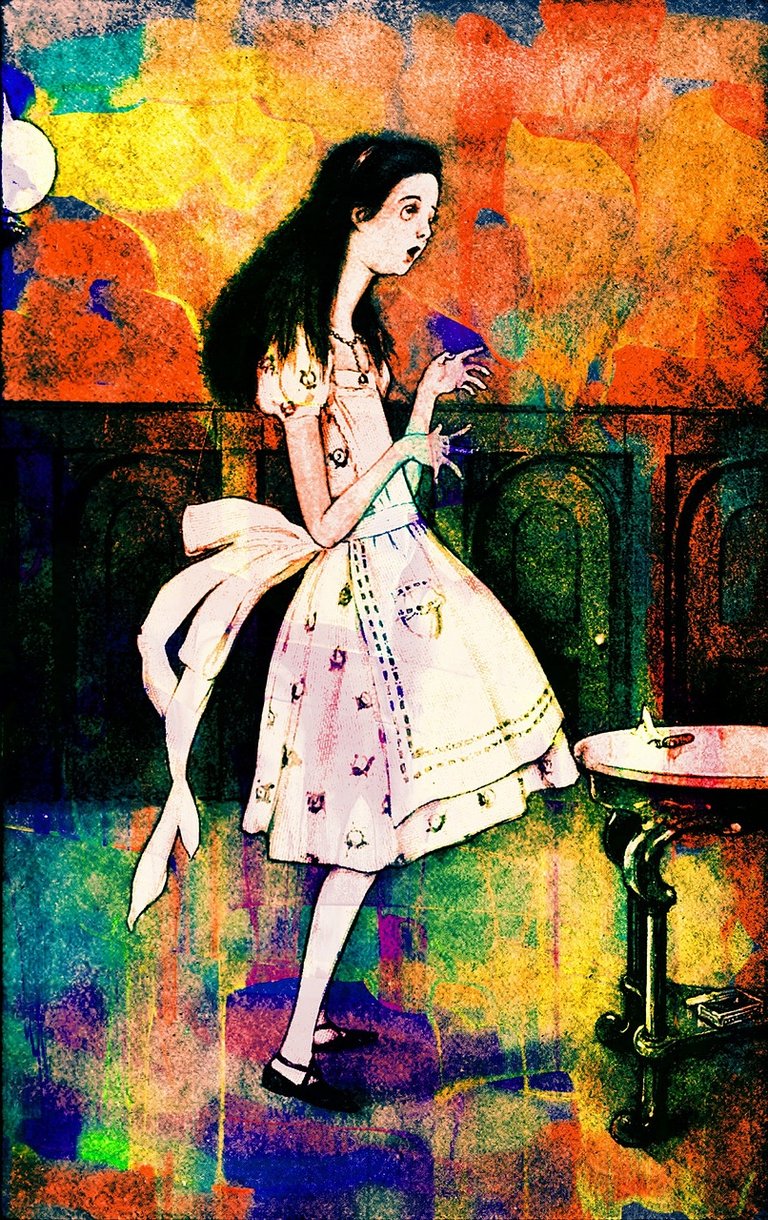
Alice in Wonderland Syndrome (AIWS) is a rare perceptual disorder that primarily affects the sense of sight. It is also known as Todd's syndrome, named after the British psychiatrist John Todd who first described the condition in 1955. The syndrome is characterized by distortions of visual perception, where the affected person may perceive objects or their own body parts as changing in size, shape, or distance.
People experiencing Alice in Wonderland Syndrome may have sensations such as:
Micropsia: Objects appear smaller than they actually are.
Macropsia: Objects appear larger than they actually are.
Pelopsia: Objects appear closer than they really are.
Teleopsia: Objects appear farther away than they actually are.
In addition to visual distortions, individuals with AIWS may also report alterations in their perception of time and a distorted sense of their own body image. The episodes of Alice in Wonderland Syndrome are usually temporary and can last from a few minutes to several days. The exact cause of AIWS is not well-understood, but it has been associated with conditions such as migraines, infectious mononucleosis, and other viral infections.
It's important to note that while Alice in Wonderland Syndrome is a fascinating and unusual phenomenon, it is rare, and most people who experience it do not have a serious underlying medical condition. If someone is experiencing persistent or severe symptoms, it is advisable to seek medical attention for a thorough evaluation and appropriate management.
Sources :
Mystery Brain Condition “Alice In Wonderland Syndrome” May Be One Step Closer To Being Solved
https://www.iflscience.com/mystery-brain-condition-alice-in-wonderland-syndrome-may-be-one-step-closer-to-being-solved-72741Alice in Wonderland syndrome mapped in the brain to improve treatments
Scientists have mapped the brain circuit behind a form of Alice in Wonderland syndrome, when someone sees themselves or others in distorted proportions, in research that could improve how it is treated
https://www.newscientist.com/article/2414767-alice-in-wonderland-syndrome-mapped-in-the-brain-to-improve-treatments/My Kid Had Alice in Wonderland Syndrome—Here’s What That Means
https://www.msn.com/en-us/lifestyle/parenting/my-kid-had-alice-in-wonderland-syndrome-here-s-what-that-means/ar-AA17B1UY
Thank you for reading. If you enjoyed this post, please make sure to follow and consider upvoting.
👍 If you enjoy our content on News To You Now (@news2unow), there are several ways you can support us. You can upvote, make a donation of Hive or other cryptocurrencies, or tokens. Every contribution, no matter how small, plays a crucial role in the growth of our blog and channel. We exist because of supporters like you. Thank you once again for being a part of our community! 🎉